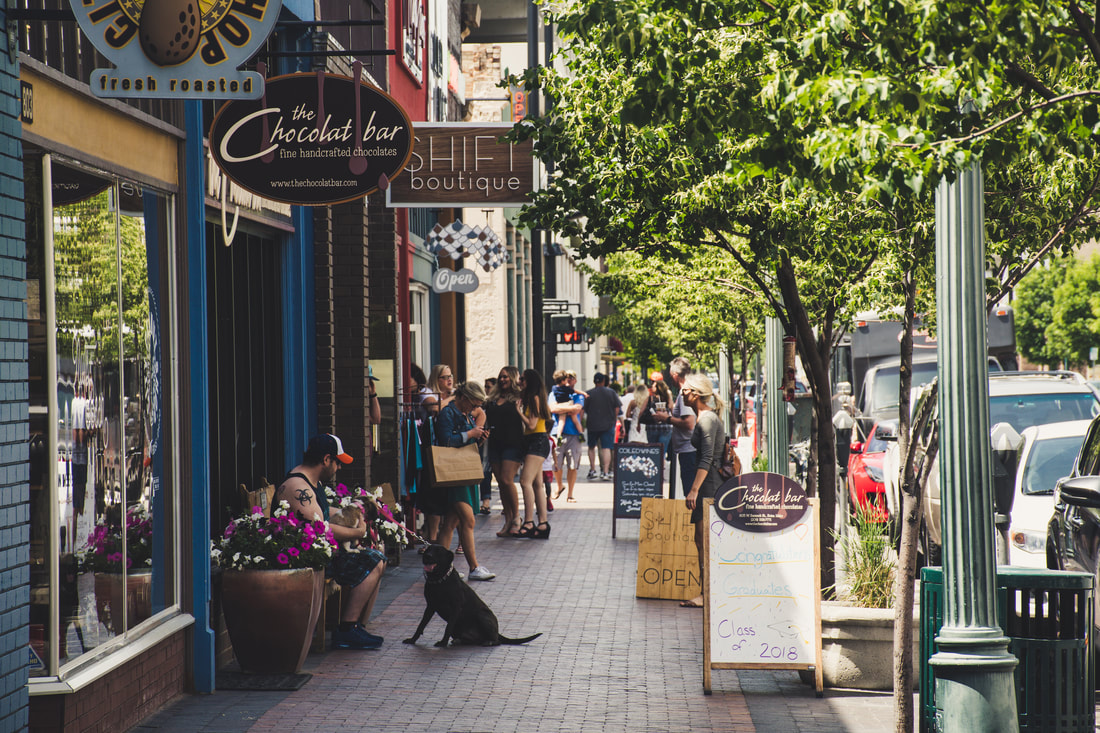|
Having a sense of community where you feel supported and can rely on others when needed acts as a buffer to the stresses and challenges that life can bring.  Feeling a sense of belonging within a community is an important part of maintaining mental wellness.
Having a sense of community where you feel supported and can rely on others when needed acts as a buffer to the stresses and challenges that life can bring. What does community mean anyway? Community can include the geographical area that a group of people live in (e.g., a town or neighbourhood) and/or the relational connections made between members of a group that share the same interest or skills (McMillan & Chavis, 1986, pg 8). This can include parent groups, yoga groups, church community, self-help or other healing groups, LGBTQ+ community, hiking groups, regulars at a coffee shop who get together, etc. McMillan and Chavis (1986) add that a sense of community includes four elements:
Small Town – Big City The challenges of establishing a sense of community can be very different when living in a small town versus a city. In a small town, most people in town probably know you because you see the same people every day, and many are either related to you or connected by mutual friendships. You know your neighbours… you’re fairly confident in who you can trust and know who to ask for a favour. You likely feel it is safe for your 10-year-old to walk several blocks on their own to get to the park or go play with a friend. In small communities, there is often a better sense of safety with daily living. In a bigger city, life is more individualistic where independence is assumed. In other words, you likely don’t know many of the people in your neighbourhood and find that people are less likely to say hello and get to know you. You hear about crime more frequently, and not knowing who your neighbours are can feel scary. In the city, you might not let your 10-year-old out past dark or walk more than a block away unsupervised. This limited safety inherent in larger areas places more pressure on individuals to find creative ways to connect with their community. However, simply on account of having a larger population, the city usually boasts more opportunities for community activities. Community Belonging and Mental Health Regardless of where you live, feeling a meaningful sense of belonging to a group, however small or large, can really help our mental state in several ways:
Here are some ways to get you started to build a sense of community:
The point is not to make it feel like another task on your already busy To-Do list. Start small if needed and begin with where you are already at. Perhaps you are already part of a meaningful community. Focus then on strengthening the connections within it. The point is to enjoy the process of building or being part of your community(ies). After all, it’s the journey of enjoying the meaningful connections we have that keeps us well. Source: McMillan, D., & Chavis, D. (1986). Sense of Community: A Definition and Theory. Journal of Community Psychology, Vol. 14. George Peabody College of Vanderbilt University. Pretty, G., Bishop, B., Fisher, A., & Sonn, C. (2006). Psychological Sense of Community and Its Relevance to Well-Being and Everyday Life in Australia. The Australian Psychological Society Ltd. |
|
OverviewNWO’s source for all things relationships, mental health, wellness, lifestyle, and pandemic support. Kelly Magazine is a mental health outreach initiative created by Kelly Mental Health and supported by Kelly Mental Health Foundation, a non-profit organization dedicated to improving the community in the area of mental health.
|
Magazine |
Follow Us |
In support of @kellymentalhealthfndn |
© COPYRIGHT. ALL RIGHTS RESERVED. WEB DESIGN BY KMH




